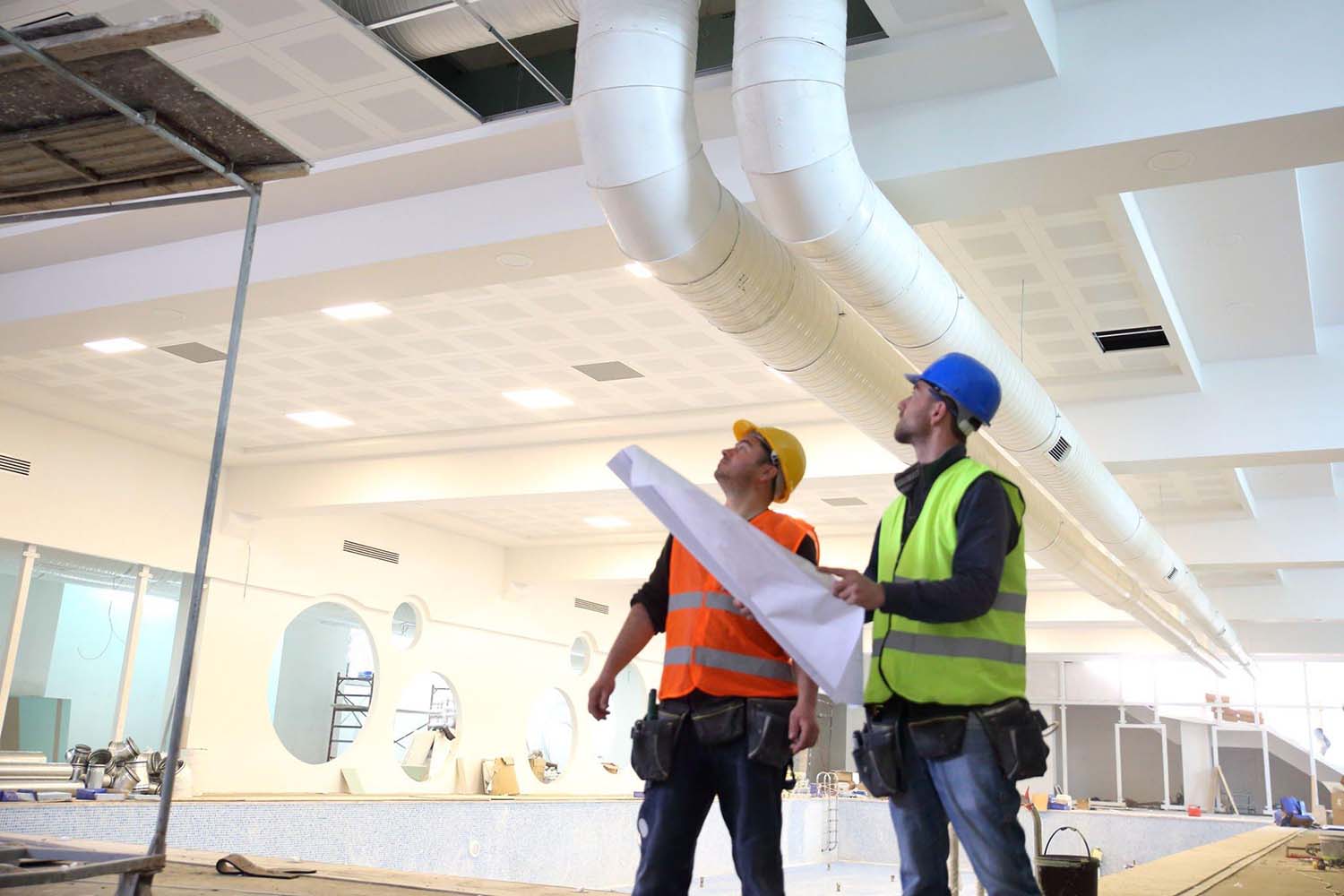Historically, buildings were constructed without much thought about energy efficiency. But as we became more aware of the negative impacts of energy consumption on the environment and operating costs, building energy codes and regulations were developed to set minimum energy efficiency requirements for buildings.
One of the major contributors to energy consumption in buildings is the heating, ventilation, and air conditioning (HVAC) system.
Let’s explore the impact of HVAC on building energy codes and regulations.

The High Energy Consumption of HVAC Systems
In modern buildings, HVAC systems play a vital role in providing a comfortable indoor environment by regulating temperature, humidity, and air quality. However, because HVAC systems consume a significant amount of energy, they are the major contributor to energy bills.
In fact, according to the Australian Government’s Department of Climate Change, Energy, the Environment, and Water, 40% of energy use in commercial buildings can be attributed to HVAC systems. This high energy consumption is often due to outdated equipment, poor maintenance practices, and inefficient design.
The Importance of Building Energy Codes and Regulations
Building energy codes and regulations were developed to promote sustainable building practices and reduce energy consumption. They provide minimum energy efficiency requirements for buildings, including HVAC systems. The goal of these codes and regulations is to ensure that buildings consume less energy, reduce greenhouse gas emissions, and save money on operating costs.
Equipment Efficiency
The design of HVAC systems determines how energy efficient they are. Building energy codes and regulations set standards for HVAC equipment efficiency, requiring it to meet minimum SEER ratings.
SEER stands for Seasonal Energy Efficiency Ratio and is a measure of how efficiently the air conditioner units operate over the course of a cooling season.
By setting these minimum efficiency standards, building energy codes and regulations ensure that HVAC equipment is designed to consume less energy and operate more efficiently.

Duct Design
Duct design is another essential factor in HVAC energy efficiency. Proper duct design can minimise air leaks and ensure that conditioned air reaches its intended destination. Building energy codes and regulations set standards for duct design, including maximum allowable air leakage rates and duct insulation requirements.
Ventilation Rates
Another way that HVAC systems impact building energy codes and regulations is through their impact on indoor air quality. Ventilation rates are critical to HVAC energy efficiency. Proper ventilation ensures that indoor air quality remains high while also minimising energy waste.
Poor indoor air quality can cause health problems, reduce productivity, and lead to legal and financial liabilities. Building energy codes and regulations often require HVAC systems to provide adequate ventilation, filtration, and air cleaning to ensure good indoor air quality.
The Benefits of Energy-Efficient HVAC Systems
Energy-efficient HVAC units lower your energy bills, reduce environmental impact, improve comfort and indoor air quality, and have longer equipment lifespan.
By consuming less energy, building owners can save money on their utility bills, while also contributing to a more sustainable future. Additionally, energy-efficient systems provide better control over indoor temperature and air quality, leading to healthier and more comfortable living and working spaces.
Final Words
Building energy codes and regulations are crucial for promoting sustainable building practices and reducing energy consumption. HVAC systems, which can account for as much as 40% of a commercial building’s energy use, must meet minimum energy efficiency standards set by building energy codes and regulations. HVAC systems that adhere to these regulations ensure safe, comfortable, and healthy indoor environments in buildings.
Therefore, by prioritising energy-efficient HVAC systems, building owners and occupants can enjoy reduced operating costs, improved indoor comfort, and environmental sustainability.








